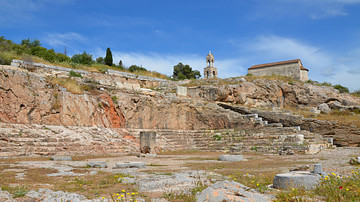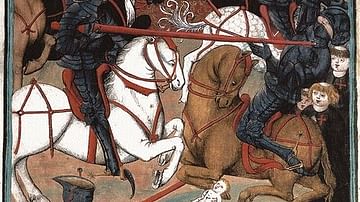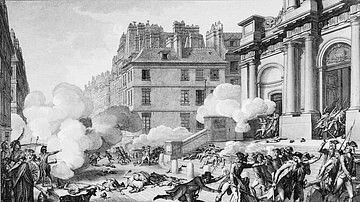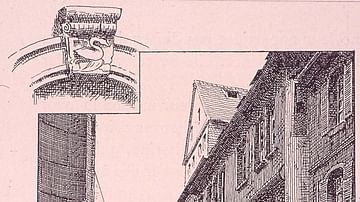Search
Did you mean: Boreas?
Search Results

Article
The Life of Diogenes of Sinope in Diogenes Laertius
Diogenes of Sinope (c. 404-323 BCE) was a Greek Cynic philosopher best known for holding a lantern to the faces of the citizens of Athens claiming he was searching for an honest man. He was most likely a student of the philosopher Antisthenes...

Article
The Instructions of Shuruppag
The Instructions of Shuruppag (c. 2000 BCE) is the most famous work of the genre of Sumerian wisdom literature whose purpose was to encourage proper behavior in conformity with cultural values and standards. It is among the oldest works of...

Definition
Medieval Guilds
Guilds of merchants and craft workers were formed in medieval Europe so that their members could benefit from mutual aid. Guilds ensured production standards were maintained and that competition was reduced. In addition, by members acting...

Definition
The Hittites
The Hittites occupied the ancient region of Anatolia (also known as Asia Minor, modern-day Turkey) prior to 1700 BCE, developed a culture apparently from the indigenous Hatti (and possibly the Hurrian) people, and expanded their territories...

Definition
Alfred the Great
Alfred the Great (r. 871-899) was the king of Wessex in Britain but came to be known as King of the Anglo-Saxons after his military victories over Viking adversaries and later successful negotiations with them. He is the best-known Anglo-Saxon...

Definition
Mystery Cults
Mystery cults, or mystery religions, were ancient religious associations characterized by secrecy and initiation rites. They typically surrounded one primary deity, but some mystery cults venerated multiple deities in their rites. Members...

Definition
Hussite Wars
The Hussite Wars (1419 to c. 1434) were a series of conflicts fought in Bohemia (modern-day Czech Republic) between followers of the reformer Jan Hus and Catholic loyalists toward the end of the Bohemian Reformation (c. 1380 to c. 1436...

Definition
13 Vendémiaire
The Revolt of 13 Vendémiaire Year IV (5 October 1795) was a royalist uprising in Paris during the French Revolution (1789-1799). In response to the anti-royalist policies of the Thermidorian Reaction, 25,000 Parisians rose in revolt but were...

Definition
Bohemian Reformation
The Bohemian Reformation (c. 1380 to c. 1436) was the first concerted effort by Catholic clergy to reform the abuses and corruption of the medieval Church. Bohemian clerics and theologians called for reform and, like later advocates, initially...

Definition
Katharina Zell
Katharina Zell (also known as Katharina Schütz, Katharina Schütz-Zell, l. 1497-1562) was a reformer, theologian, and prolific writer in Strasbourg who helped establish the basic tenets of the Protestant Reformation without advancing sectarian...